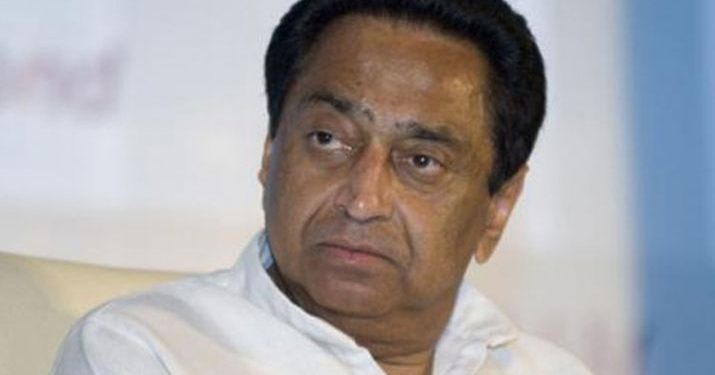New Delhi: Amid uncertainty over the impending results of the Lok Sabha elections, with both the BJP and the Opposition claiming victory, the Congress has deployed Madhya Pradesh Chief Minister Kamal Nath to discuss possibilities of a post-poll alliance with Odisha’s ruling Biju Janata Dal (BJD).
Communication channels have also been kept open with Odisha Chief Minister and BJD president Naveen Patnaik, sources said.
Commenting on the development, while a senior BJD leader said that nothing is concrete so far, another Congress leader suggested to first wait for the results.
The Grand Old Party has further held informal talks with a number of other regional parties outside the UPA so as to be able to muster the required numbers quickly if the situation so warrants. Congress leaders are hoping that the party will win close to 150 seats, which will make the task of government formation easy.
“If we get 150 seats, we will definitely form the government. Nobody can stop us. There will be many parties willing to joins hands,” a Congress leader said.
According to sources in the Congress, there have been unofficial communications with the Telangana Rashtra Samiti (TRS) and the YSR Congress Party, both of which are expected to do well in Telangana and Andhra Pradesh, respectively.
A meeting of the Opposition parties is likely to be held after the last phase of polling May 19, but ahead of counting of votes May 23.
It may be recalled here that the Congress took a quick decision to forge a post-poll alliance with the Janata Dal-Secular (JD-S) in Karnataka to keep the BJP out of power after the Assembly elections held last year, even though the BJP had emerged as the single largest party.
The party is keen to act in a similar manner after the Lok Sabha polls in order to oust the BJP-led NDA government.
While the Congress is assured of getting the support of its allies in the United Progressive Alliance (UPA), including the Nationalist Congress Party (NCP) and DMK, it would need more to take a shot at power.
Parties such as the TRS, the YSR Congress Party and the BJD seek to maintain equal distance from both the Congress and the BJP. They will have to be wooed if their support is required to cross the half-way mark.
YSR Congress Party leader Y.S. Jagan Mohan Reddy is keeping his cards close to his chest. Given that his rival in state politics and Telugu Desam Party (TDP) chief N. Chandrababu Naidu has aligned with the Congress at the national level, it will not be easy for YSR Congress Party to do the same.
The situation is similar for TRS leader K. Chandrasekhar Rao, who has also made efforts to forge a federal front comprising non-BJP, non-Congress parties.
However, Congress’ promise of giving special category status to Andhra Pradesh could work in its favour in getting the support of the regional parties in that state.
The Aam Aadmi Party (AAP) too has said that it would support Congress President Rahul Gandhi as the Prime Ministerial candidate if he supports the demand for full statehood status to Delhi.
Apart from the outcome in Andhra Pradesh and Telangana, the post-poll equations will also be shaped by the performance of Trinamool Congress in West Bengal and the Samajwadi Party-Bahujan Samaj Party-Rashtriya Lok Dal alliance in Uttar Pradesh.
The Congress leaders are confident that the party will do much better than 2014 when it won only 44 seats. They expect the party to make gains in states such as Rajasthan, Madhya Pradesh, Chhattisgarh, Gujarat, Karanataka, Maharashtra, Punjab, Haryana, Assam, Jharkhand, Kerala, Tamil Nadu, Bihar, Uttar Pradesh, Himchal Pradesh, Uttarakhand and Delhi.
According to the CVOTER-IANS tracker, the net approval rating of the Narendra Modi government has dropped 12 points between March 12 and April 12.
The performance rating of the Central government had peaked in the days after the Balakot air strike on February 26, touching the highest level of 62.06 March 7.
After remaining in the 50s till March 22, the approval ratings had come down to 43.25 April 12, a day after the first phase of polling was held for 91 Lok Sabha seats.
While there has been speculation that no party will gain majority this time, most BJP leaders maintain that the party will perform better than 2014 when it won 282 seats.
(IANS)






































